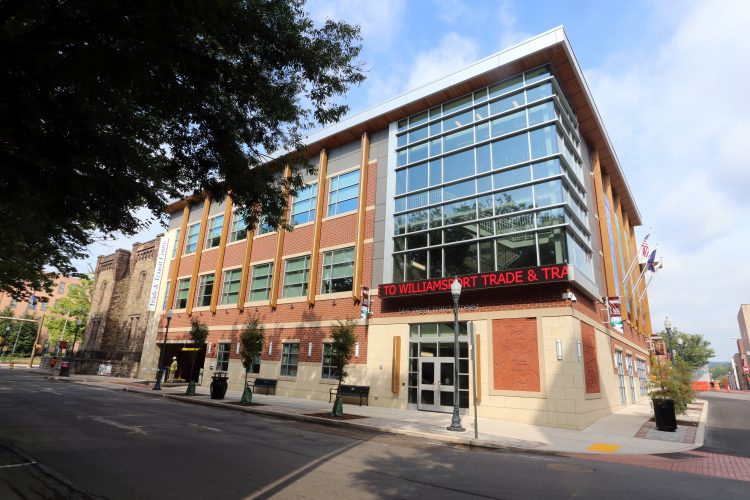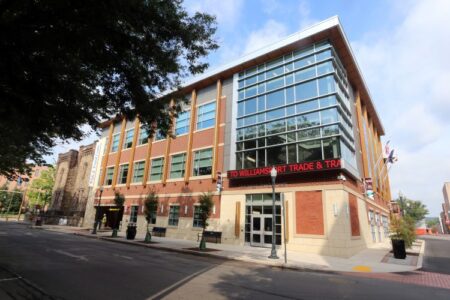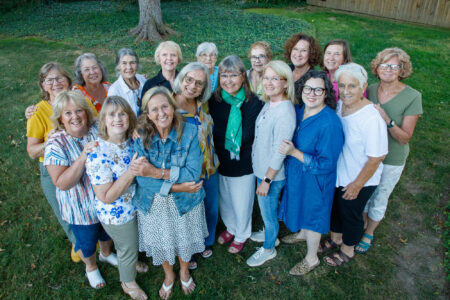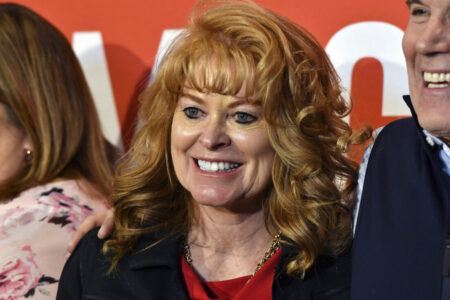Williamsport City Council president calls for focus on existing businesses’ growth

SUN-GAZETTE FILE PHOTO Williamsport City Council meets at the Trade and Transit II Centre along West Third Street.
Williamsport City Council President Adam Yoder recently weighed in on ways to improve the city’s economic condition as it faces a challenging 2026 proposed budget and is looking at better positioning the city finances in the years ahead.
The city faces a potential deficit in 2026 of at least $3 million or more if nothing is done to correct it, according to Gordon Mann, managing director, Public Financial Management (PFM), Philadelphia. A chart has the deficit as much as $5.1 million if it does not shrink.
“When you think about economic development, and I could be wrong here, the thing that seems to be continually missing to me from not only the city but, I think just regionally, is focus on our existing infrastructure, and, … to enable our existing businesses to help grow,” Yoder said.
“I feel like there’s a lot of unharvested fruit from that perspective,” he said. “When we start looking at 2026 and beyond, what do we need to do from a city perspective to maybe enable that kind of stuff,” Yoder said.
“How does that correlate with changing the population trend in the city?” Yoder asked.
The declining population throughout the city and region is seen in the numbers and in discussion between council and the administration, although recent trends also indicated more younger families are attracted to the amenities the city is offering such as parks and recreation and healthy, fun, family activities.
“If we had population growth in the city, we’d have a much different conversation here tonight,” Yoder said.
“Correct,” Mann said.
“Frankly, it’s a big part of why we’re seeing the narrative with the county and their financial challenges,” Yoder said. “It is a regional issue. It’s not just here.”
Yoder, in his commentary, drew a comparison of why there needs to be reforms in Harrisburg, such property tax versus more flexible options that communities that go the Home Rule charter route have in their kit.
That includes the ability to increase earned income tax, which is capped at 1 %, while gross revenue from property taxes is expected to remain relatively flat, Mann said.
“The system is awful, right?” Yoder said.
Since the council held its Home Rule workshop, which has been covered by the Sun-Gazette in a series of stories and a meeting that can be seen on YouTube, Yoder said he has had a few residents approach him as they start to think about Home Rule from a revenue perspective.
“They say, ‘You know what? I kind of get it.'”
It was voted down eight years ago, but these are different years and the economy that is tighter for most people.
“Have a little bit more (taken) on your income, and notably we could hold and or even get to the point where we can lessen the burden on the property-tax side,” Yoder said.
With Home Rule, there’s a potential for growing the base and spreading it over a much wider margin, which makes good fiscal sense, he said.
“It is fair and much easier of a burden to share compared to what we currently live now,” Yoder said.
Yoder and others on council said they looked forward to hearing more recommendations from PFM at a meeting on Oct. 16, which is not the company’s final report.




